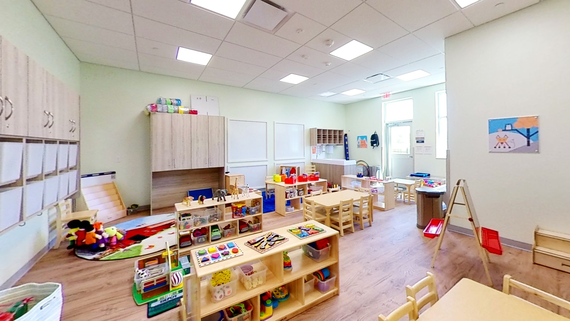Montessori Children's House
Center in Sheboygan, WI 53081
Montessori Childrens House, Inc. of Sheboygan is committed to introducing children to the joy of learning at an early age using the principles espoused by Dr. Maria Montessori. We believe that these principles provide a framework in which intellectual and social development go hand in hand. In a Montessori setting a child is able to grow and develop her full potential at her own pace. The Montessori environment helps the child to develop independence, self-discipline, respect, and self esteem, as well as academic and practical skills. We encourage the child to use all five senses to explore his world, thus creating a deep love for learning that will last a lifetime.
- Child Ages:
- 6 weeks - 12 years
- Licenses & Accreditations:
- Wisconsin Department of Children and Families
- Hours of Operation:
- Monday - Friday: 6:00AM - 6:00PM
Want more information?
- Classroom Ratios
- Director and Teaching Staff Bios
- Course and Teaching Material
- Menus, Activities, and more...
There are several elements that define the Montessori method. Many of these have been accepted and adapted for use in mainstream preschools, and others are unique to Montessori programs.
1) the absorbent mind- The Absorbent mind is an unconscious, creative and non-selective process by which the brain takes in everything from the environment. This allows the child to literally, and effortlessly, absorb information from his surroundings. Although many early childhood educators now accept the principle of the absorbent mind, it is uniquely nurtured in a Montessori classroom. The classroom is very rich and varied, giving the child many opportunities for both conscious and unconscious learning.
2) the whole child approach- One of the primary goals of a Montessori program is to help each child reach their full potential in all areas of life. Children are encouraged to grow socially, physically, cognitively, intellectually, and emotionally. This integrated approach leads to increased confidence and independence, as well as creating an environment in which learning is interesting and fun, as opposed to competitive.
3) freedom within limits- because the Montessori classroom is carefully prepared by the directress, everything is meant to be used by the children. Only developmentally appropriate, child-friendly materials are available, creating an environment that is truly made for children. Thus, children in a Montessori classroom enjoy tremendous freedom of choice and exploration.
4) learning as work- although most Montessori programs allow ample time for free play activities (both in- and outdoors), you will most often observe children in a Montessori setting working. Calling the childs learning work lends seriousness to the activity (it is, in fact, the job of the child to learn) and more clearly defines their rights and responsibilities regarding that activity. It also helps the child to understand that what she is doing is important and valuable- just like the work her parents do- which helps create confidence and build self-esteem.
5) multi-age setting- One of the major differences between a Montessori environment and a traditional classroom is that Montessori children learn in a multi-aged setting. Multi-aged preschool environments offer opportunities for children ages 0-3 and 3- 6 to grow and learn over an extended period of time and to develop naturally at their own pace. The multi-aged setting naturally supports constant interaction, problem solving, child-to-child modeling and socialization.



